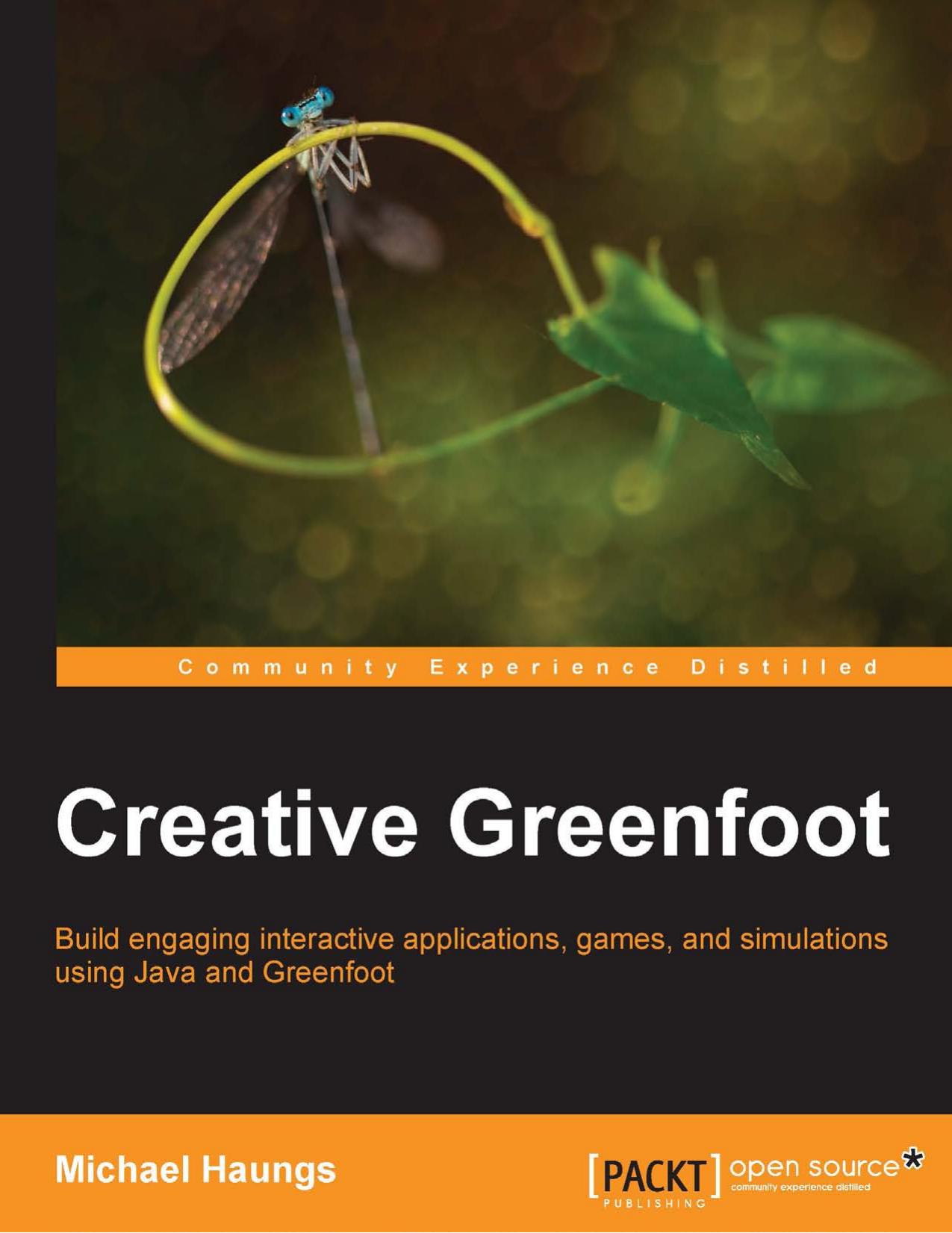Creative Greenfoot by Michael Haungs

Author:Michael Haungs [Haungs, Michael]
Language: eng
Format: azw3, epub, pdf
Publisher: Packt Publishing
Published: 2015-04-26T16:00:00+00:00
Complexity
There is a really funny game that demonstrates what a game plays like when the player's choices are overly simplistic. It is called Super PSTW Action RPG. In this RPG, you only have one control—the spacebar. For every given situation, you simply hit the spacebar. If you haven't guessed, the PSTW in the title stands for Press Space To Win.
Obviously, this game is a joke, but it is also an interesting experiment in game design. There is no meaningful play in the game, because the choice and action a player has to take is trivial. The actions and outcomes are well designed, but that is insufficient. Without complexity of choice, there is no meaningful play. We don't have to go to such an extreme example to demonstrate this point. Have you ever played the card game War? If not, you can quickly review the rules here: http://en.wikipedia.org/wiki/War_(card_game). This game also has no meaningful play. Throughout the game, the player either flips a card over or places three cards face down and then flips a card over. The current game state completely informs the player of which action they should take. There are no tradeoffs to consider and no risk analysis to be done. It is all mechanical play. For most players older than 10 years, Tic-Tac-Toe suffers from the same lack of meaningful play.
For meaningful play to exist, the decisions a player makes should require sufficient mental effort. A player must have several options available to them and each option should involve different tradeoffs, risks, and rewards. For example, in our RPG scenarios above, the player might have the following choices available to them: cast Fireball, cast Lightning Strike, cast Charm Monster, talk, or flee. Perhaps the player has learned previously in the game, that charm spells rarely work on dragons and that certain dragons are immune to either fire or lightning. The player could choose to flee. This is a low-reward, low-risk option.
When a player is making non-trivial decisions, taking action, and is provided with clear feedback, then the game becomes meaningful. When making decisions in an interactive application or game, the player needs to know what the goals of the interaction are. Is it to create custom pieces of music, become the most powerful wizard, or get the best deals on an e-commerce site? Setting up user goals is the next most important aspect of creating engaging applications.
Download
Creative Greenfoot by Michael Haungs.epub
Creative Greenfoot by Michael Haungs.pdf
This site does not store any files on its server. We only index and link to content provided by other sites. Please contact the content providers to delete copyright contents if any and email us, we'll remove relevant links or contents immediately.
The Mikado Method by Ola Ellnestam Daniel Brolund(22540)
Hello! Python by Anthony Briggs(21721)
Secrets of the JavaScript Ninja by John Resig Bear Bibeault(20296)
Dependency Injection in .NET by Mark Seemann(19635)
The Well-Grounded Java Developer by Benjamin J. Evans Martijn Verburg(19403)
Kotlin in Action by Dmitry Jemerov(19348)
OCA Java SE 8 Programmer I Certification Guide by Mala Gupta(18840)
Algorithms of the Intelligent Web by Haralambos Marmanis;Dmitry Babenko(17650)
Adobe Camera Raw For Digital Photographers Only by Rob Sheppard(16968)
Grails in Action by Glen Smith Peter Ledbrook(16799)
Test-Driven iOS Development with Swift 4 by Dominik Hauser(10948)
Becoming a Dynamics 365 Finance and Supply Chain Solution Architect by Brent Dawson(8069)
Microservices with Go by Alexander Shuiskov(7834)
Practical Design Patterns for Java Developers by Miroslav Wengner(7733)
Test Automation Engineering Handbook by Manikandan Sambamurthy(7695)
Angular Projects - Third Edition by Aristeidis Bampakos(7181)
The Art of Crafting User Stories by The Art of Crafting User Stories(6627)
NetSuite for Consultants - Second Edition by Peter Ries(6546)
Demystifying Cryptography with OpenSSL 3.0 by Alexei Khlebnikov(6324)
